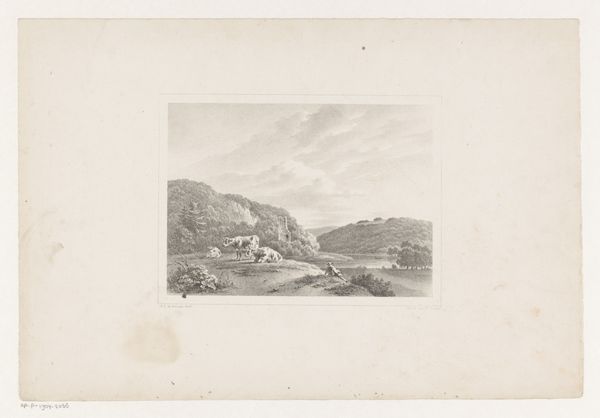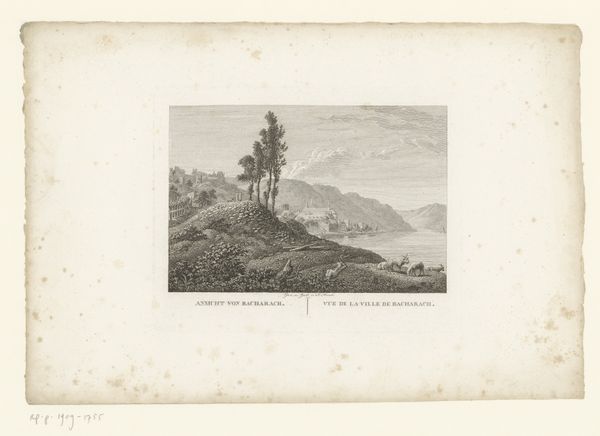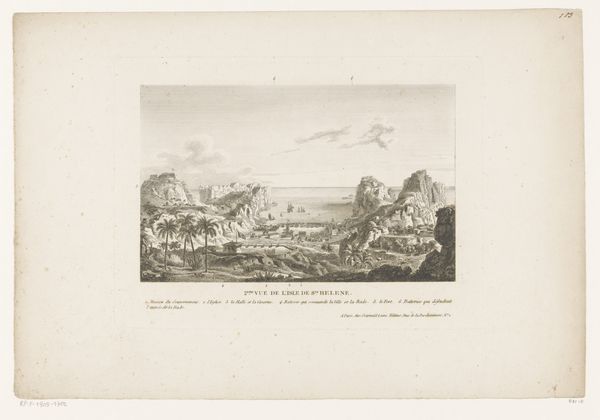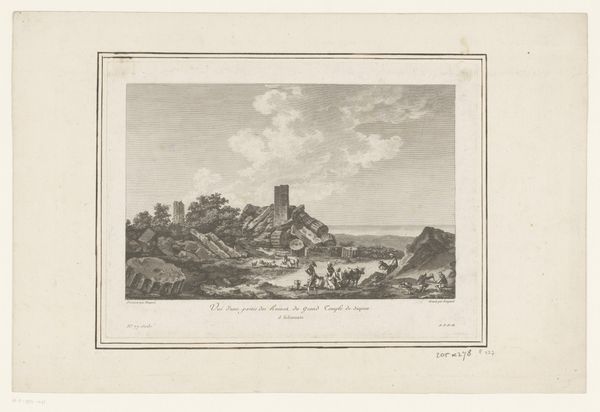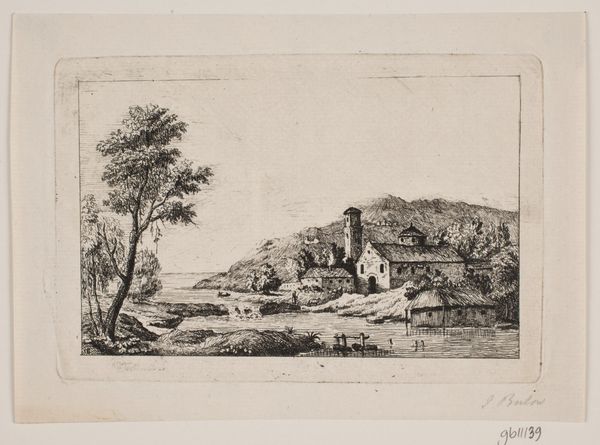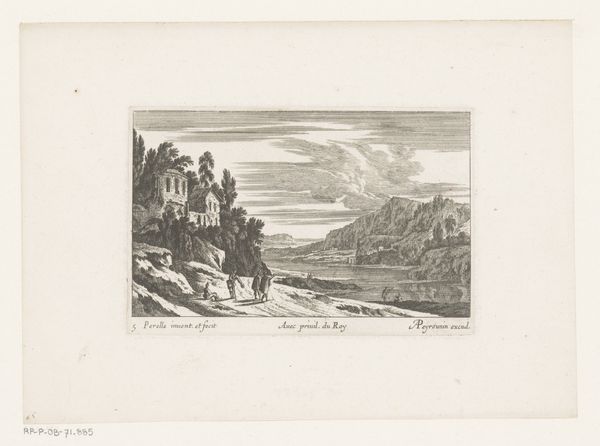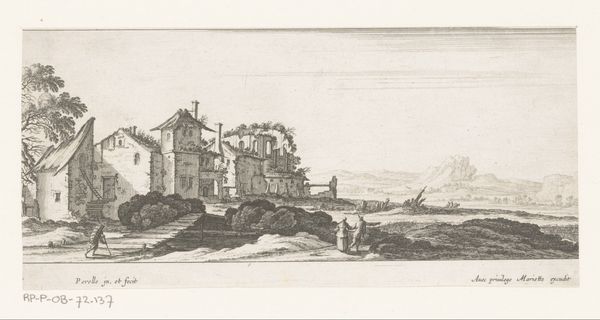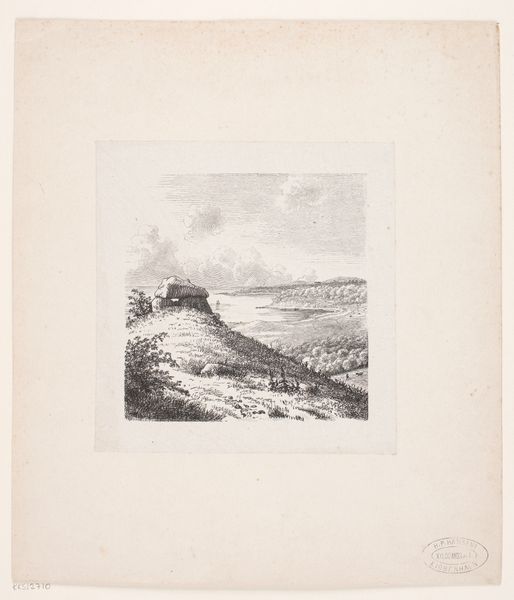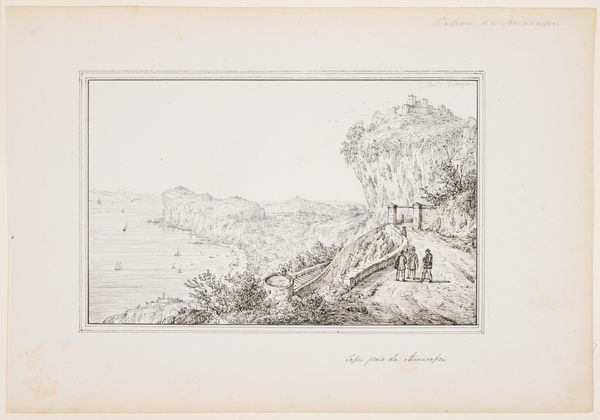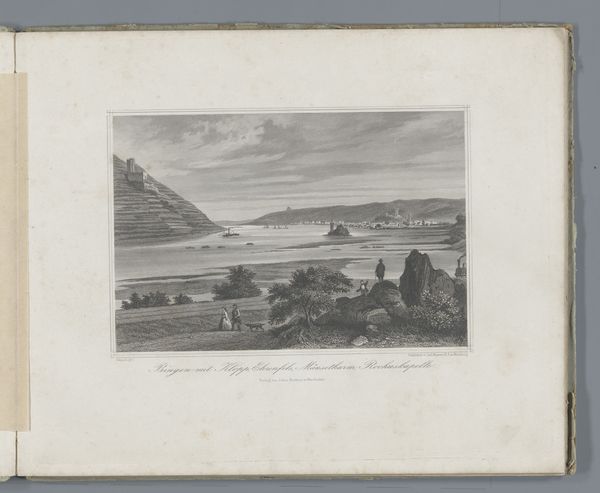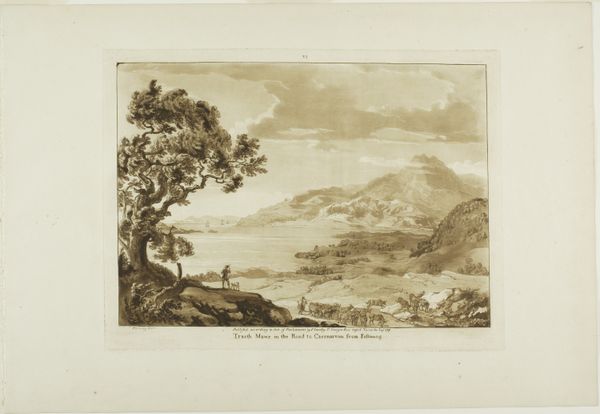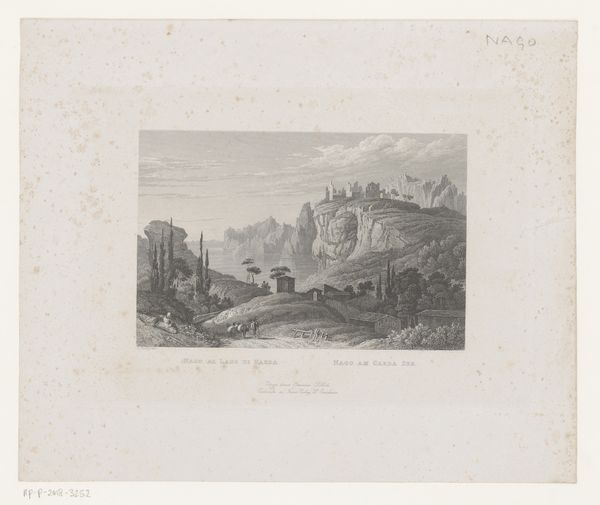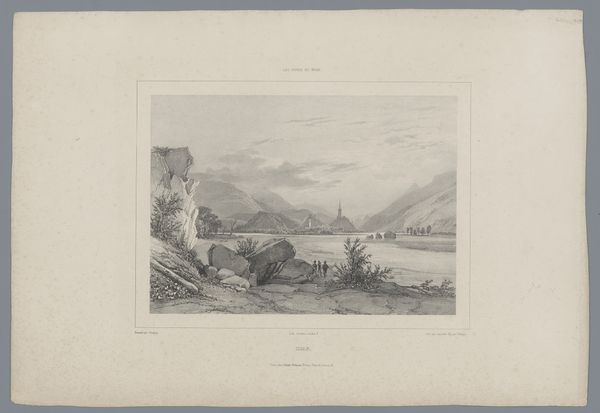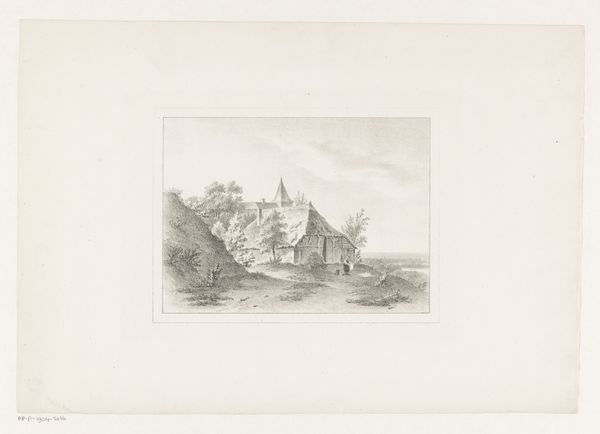
drawing, print, etching
#
drawing
# print
#
etching
#
old engraving style
#
landscape
#
white palette
#
romanticism
#
realism
Dimensions: height 193 mm, width 242 mm
Copyright: Rijks Museum: Open Domain
Editor: This is Jakob Wilhelm Christian Roux's "Gezicht op de Appolinariskerk," created around 1822, using drawing, etching, and printmaking techniques. I’m struck by how meticulously the artist renders the landscape with such a delicate range of tones. What can you tell me about the formal elements at play here? Curator: Notice how the composition relies on a distinct contrast between the detailed foreground and the receding background. The lines are precise, carefully delineating forms and textures. Roux employs hatching and cross-hatching to create tonal variations and depth, lending the scene an air of authenticity. Editor: It almost feels like the building is growing out of the hillside because the materials are so well integrated by their textures and tonal likeness. Is there any hierarchy in the composition? Curator: Certainly. The building’s structure atop the hill commands immediate attention. Observe how the vertical lines of its architecture are juxtaposed against the horizontal expanse of the landscape. The balance achieves stability, with a carefully arranged asymmetry, preventing the scene from feeling static. Editor: It's interesting how the artist uses relatively few clear structural differentiations or stylistic delineations to evoke such a tangible sense of form, depth, and detail. How much is due to his specific choices versus the stylistic conventions of his time? Curator: That’s a pertinent question. While Roux certainly adhered to the prevalent style of his era, observe his emphasis on replicating natural textures, for instance, the rough stones of the building, or the nuanced rendering of foliage. The interplay of these textural contrasts enlivens the scene, inviting the eye to linger. Editor: Looking closely at the lines, I think I am gaining a better sense of how etching can create texture as well as form. Thanks! Curator: Indeed. Studying the intrinsic elements can offer an invaluable key to unlocking the art's significance.
Comments
No comments
Be the first to comment and join the conversation on the ultimate creative platform.
